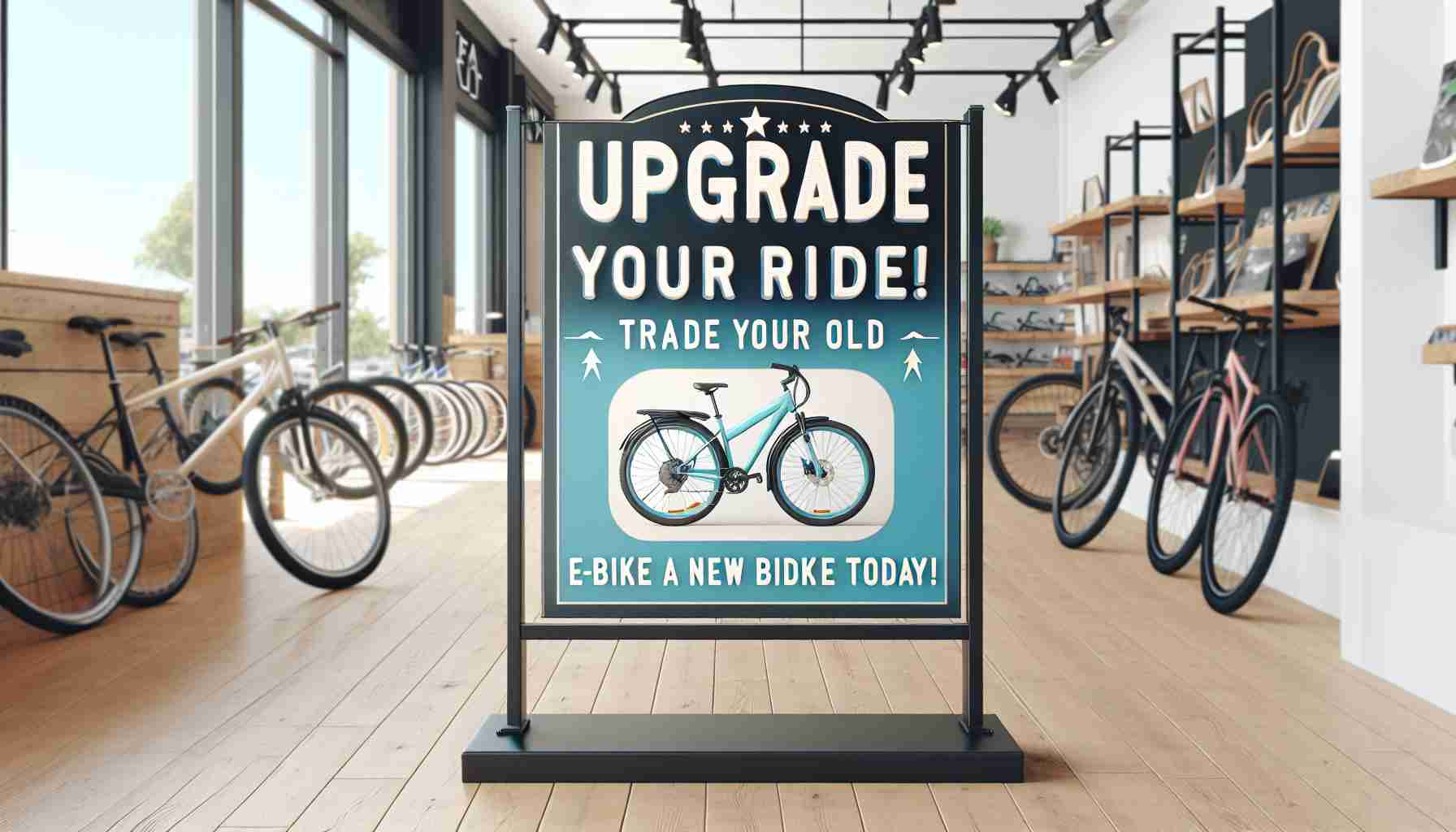Революция В Владении Электровелосипедами
Партнёрство французского восстановителя электровелосипедов Upway и Rad Power Bikes привлекает внимание в сообществе электровелосипедов, делая обновления проще, чем когда-либо. Благодаря инновационной программе Trade-In от Upway, клиенты, посещающие любой из восьми розничных магазинов Rad по всей территории США, теперь могут обменять свои старые электровелосипеды на привлекательные скидки на новые модели.
Это сотрудничество подчеркивает необходимость снижения воздействия на окружающую среду, связанного с утилизацией электровелосипедов, что становится всё более актуальной проблемой в растущем секторе микромобильности. В 2022 году в США было продано более 1,1 миллиона электровелосипедов, что стало чудовищным увеличением на 400% по сравнению с 2019 годом, и необходимость в устойчивых практиках очевидна. Неправильная утилизация может значительно повредить окружающей среде, что делает это партнёрство критически важным.
Программа Trade-In от Upway, уже используемая более чем 2000 розничными продавцами в США и Европе, направлена на содействие.circular economy. Обновляя обменянные электровелосипеды, они не только сокращают количество отходов, но и предлагают клиентам доступную альтернативу новым моделям.
Розничные магазины Rad теперь используют специализированный ценовой алгоритм для определения стоимости электровелосипедов клиентов, предлагая бесшовные варианты продажи или обмена. Восстановленные велосипеды затем подготавливаются к повторной продаже с гарантией на один год, что положительно сказывается как на устойчивом развитии, так и на доступности.
С этой инициативой обновление своего велосипеда стало проще и экологичнее, прокладывая путь к устойчивому будущему в мире электровелосипедов.
Трансформация Обновлений Электровелосипедов: Будущее Устойчивое
Революция В Владении Электровелосипедами
Важным шагом к устойчивому развитию и лёгкости владения является партнёрство между Upway, французским восстановителем электровелосипедов, и Rad Power Bikes, изменяющее ландшафт обновлений электровелосипедов. Их инновационная программа Trade-In позволяет клиентам обменивать старые электровелосипеды на скидки на новые модели в любом из розничных магазинов Rad по всей территории США, упрощая путь к более зеленым решениям в области микромобильности.
Растущий Спрос На Электровелосипеды
Рост популярности электровелосипедов бесспорен. В 2022 году в США было продано более 1,1 миллиона электровелосипедов, что стало замечательным увеличением на 400% по сравнению с 2019 годом. Этот взрывной рост подчеркивает срочную необходимость в устойчивых практиках на рынке электровелосипедов, особенно в области управления отходами и утилизации. Экологические последствия неправильной утилизации электровелосипедов создают значительные проблемы, которые такие организации, как Upway и Rad Power Bikes, стараются решить.
Программа Trade-In от Upway: Успех Для Клиентов И Планеты
Программа Trade-In от Upway направлена на создание.circular economy, позволяя клиентам участвовать в экологически чистых практиках, получая при этом экономические преимущества. Вот более подробный взгляд на ключевые особенности и преимущества программы:
— Бесшовные Обмены: Использование специализированного ценового алгоритма в розничных магазинах Rad гарантирует, что клиенты получат справедливую стоимость за свои обменянные велосипеды, упрощая процесс продажи или обмена.
— Восстановленные Электровелосипеды: Обменянные велосипеды восстанавливаются и продаются с гарантией на один год, предлагая клиентам надежное и доступное решение по сравнению с покупкой новых моделей.
— Экологическое Воздействие: Обновляя электровелосипеды, Upway напрямую сокращает количество отходов, помогая смягчить негативные экологические последствия, связанные с утилизацией электровелосипедов.
Плюсы И Минусы Программы Trade-In
Плюсы:
— Доступная альтернатива новым электровелосипедам
— Вклад в экологическую устойчивость
— Гарантия на восстановленные велосипеды
— Упрощенный процесс обмена благодаря инновационным ценовым алгоритмам
Минусы:
— Ограниченно розничными магазинами Rad
— Клиенты могут не получить полную стоимость своих изначальных инвестиций
— Наличие определенных восстановленных моделей может варьироваться
Рыночные Анализы И Тренды
Растущий рынок электровелосипедов не только свидетельствует о технологических достижениях, но и отражает изменение потребительских предпочтений в сторону устойчивых транспортных решений. Новые тренды показывают растущую приверженность потребителей к участию в устойчивых практиках, что способствует дальнейшему внедрению инициатив, таких как программа Trade-In от Upway. Эксперты прогнозируют, что эта тенденция продолжит формировать ландшафт мобильности, делая электровелосипеды основой городских транспортных решений.
Взгляд В Будущее: Инновации И Устойчивость
По мере расширения рынка электровелосипедов внимание к устойчивости остается важным. Ожидается, что инновации в области времени работы батарей, дизайна и энергетической эффективности будут развиваться вместе с инициативами, которые способствуют переработке и восстановлению старых моделей. Сотрудничество между Upway и Rad Power Bikes является пионерским усилием в этом секторе, служа моделью для будущих партнёрств в области электровелосипедов, нацеленных на охрану окружающей среды.
Заключение
С инициативами, такими как программа Trade-In от Upway, путь к более умному и устойчивому владению электровелосипедами стал яснее, чем когда-либо. Поскольку потребители продолжают рассматривать электровелосипеды как жизнеспособную альтернативу транспорту, эти инновационные программы уменьшают воздействие на окружающую среду и повышают доступность, обеспечивая, что будущее электровелосипедов будет таким же «зеленым», как и захватывающим.
Для получения дополнительной информации о устойчивых транспортных практиках посетите сайт [Upway](https://www.upway.com).
